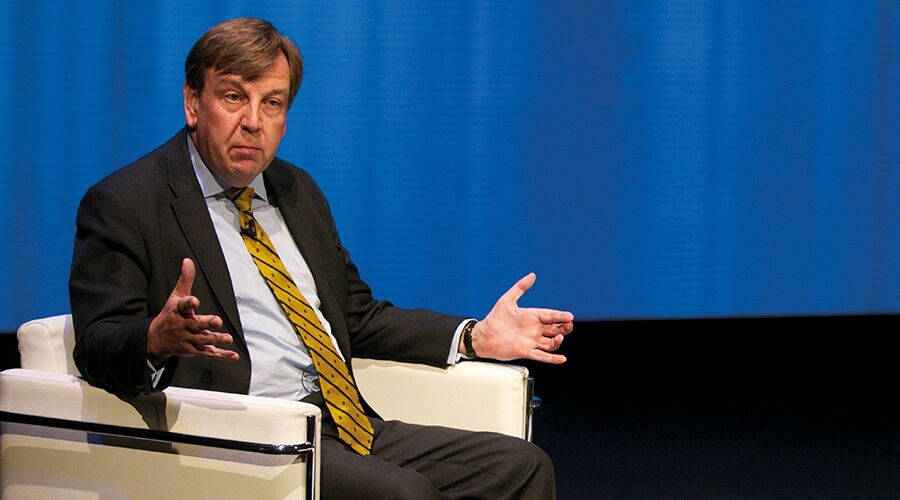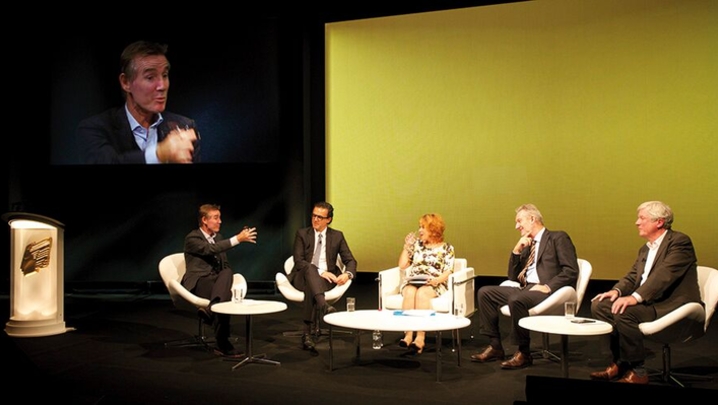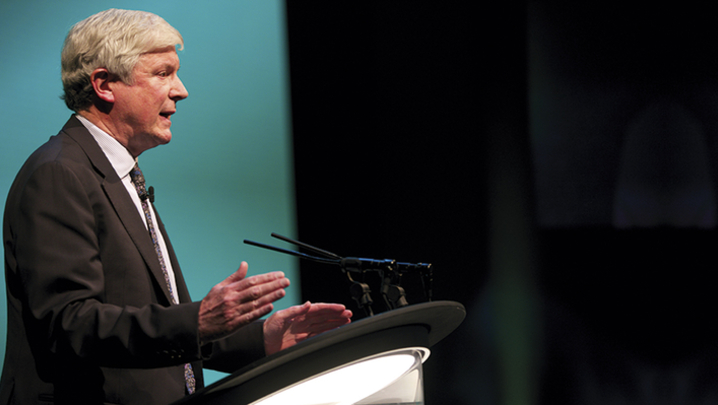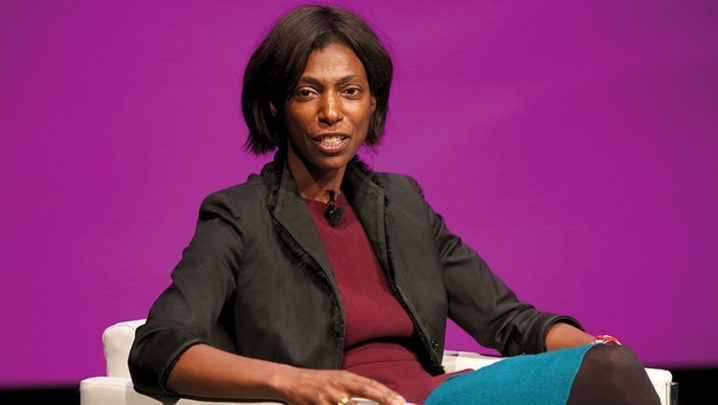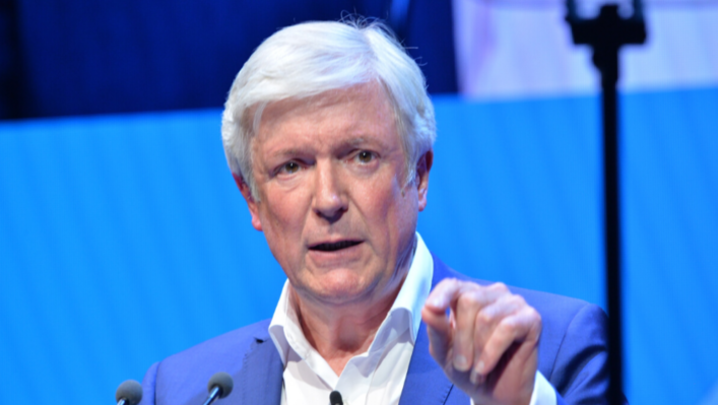Cambridge Convention 2015 Session Three: The culture minister confesses he could not live without the BBC but tells the corporation to raise its game.
John Whittingdale was introduced by Convention Chair Tony Hall as “a rare beast, a politician who watches television”, and he began his speech by reminding delegates that, for him, this convention was no baptism of fire.
His first appearance at Cambridge came 12 years ago as Shadow Secretary of State for Culture; he had set up his own panel to review the future funding of the BBC. Then, as now, the corporation’s Charter and licence fee were the key issues on the agenda.
“It is right that debate should take place, because television is of huge importance to the nation – and the BBC lies at the heart of British TV,” he said.
“I have always loved TV. My PVR is full of shows such as Strike Back (Sky), Humans (Channel 4), Partners in Crime (BBC One), Gotham (Channel Five) and The X Factor (ITV).”
“I am acutely conscious that it is something that this country is extraordinarily good at,” he emphasised. He highlighted the economic benefits of tax credits in attracting film and high-end TV production, the 1.8 million employed in creative industries in the UK, and television industry estimates that the sector generated £13.3bn in 2014, up 3.1%, year on year.
“Given the huge change that has taken place in the past 10 years, it is surely sensible that we should take this opportunity to consider the BBC’s role in this changing environment – to look at its funding, its governance, its mission and purpose, its scale and scope,” said Whittingdale.
It was why the select committee he chaired spent more than a year considering the BBC’s future. The questions it posed were very similar, he added, to those in the green paper on the BBC published on 16 July.
“I was therefore somewhat surprised that the green paper was greeted as somehow heralding the demise of the BBC, or as evidence of a Murdoch-inspired agenda to dismantle it – a charge I found particularly surprising since my last meeting with Rupert Murdoch took place over four years ago, after I had served a warrant on him, requiring his presence in Parliament in relation to the phone-hacking inquiry [much laughter from the audience].
“So there is absolutely no prospect of the BBC being abolished.”
He conceded that the reaction was conditioned by the “difficult decision” over transferring the cost of free licences for the over-75s to the BBC.
Referring to the BBC’s recent experiment in which people had to live without BBC services for nine days, he said: “Had I been asked if I could I live without the BBC, I would certainly have said no.
“But Charter review is an entirely separate exercise and it raises more fundamental questions,” Whittingdale stated. “Let me be clear: there is no threat to the BBC’s status as a world-class broadcaster, let alone an existential threat.
“What we are exploring… is how the BBC fits into the contemporary broadcasting landscape and how it might become even better.
“It is not my job to run the BBC…. However, it is right to ask questions, such as whether the BBC is sufficiently focused on providing distinctive programmes and services.
“To give one example, its highest spending service, BBC One, regularly scores lowest on the BBC’s metrics for ‘fresh and new’ content and has been identified in consecutive BBC Trust reports as needing to make its offering more distinct….
“It is also important to look at the impact the BBC has on its commercial rivals and, again, to give just one example, whether it is sensible for its main evening news bulletin to go out at the same time as ITV’s.
“So I can confirm my department is commissioning independent research into some of the BBC’s impact in the market on its commercial competitors. This report will feed into the evidence base for Charter review.
“No one could deny that the BBC has made some bad mistakes in the past few years. Savile, McAlpine, Ross-Brand, severance payments and excessive salaries have all contributed to a widespread view that the governance and management structure needs reform.”
The minister announced that he had asked former Deputy Governor of the Bank of England Sir David Clementi to conduct an independent review of BBC governance and regulation.
On the licence fee, he noted: “Public support is not unqualified. The BBC’s annual report shows that it no longer enjoys majority support among the public. The BBC benefits from subscription and advertising in foreign markets.”
He continued: “It is also very important that objective research about public preferences and willingness to pay forms part of Charter review.
“The green paper outlines three overarching options for future funding models: a modernised licence fee, an alternative household levy and elements of subscription. All deserve careful consideration.”
No one could deny that the BBC has made some bad mistakes in the past few years
Whittingdale said that he welcomed a number of the proposals in the BBC document published on 7 September. He singled out increased investment in drama and comedy, greater emphasis on more distinctive programming and the development of an open platform to host the best content from museums, galleries and scientific and cultural bodies.
The BBC’s plan to invest more in local news, and to make its coverage freely available, was “an excellent idea” but “it is important that it should help local media rather than further undermine them”. The BBC “should... commission content from qualifying local media organisations and news agencies”, rather than employ journalists directly.
He also warmly welcomed BBC proposals to invest in new services for North Korea, Russia, India and Eritrea. “At a time of greater global instability and a rising volume of propaganda from countries with little regard for objectivity and truth, the role of the BBC World Service is even more important,” Whittingdale noted.
“Having spent five years as Chairman of Parliament’s Ukraine group, I am very much aware of the need for an impartial and honest source of news in contrast to that which comes from Russia.”
The minister turned to the independent production sector, announcing that he was asking Ofcom to “undertake a health check of the terms of trade regulations”.
The original objectives of the 2003 regulations included promoting cultural diversity, opening up the production system to new voices and stimulating the growth of small and medium enterprises.
“I think those objectives still hold good,” he said. “But it is also sensible to consider whether the regulations are still the most appropriate for UK businesses and the viewing public.”
He noted that seven of the 12 biggest UK independents were now part of major international broadcasting companies.
Ofcom’s recent public broadcasting service review had expressed concerns. He noted that it “had gone on to suggest that the area should be kept under review. As a result, the time seems right to check whether the regulations remain the most effective means of supporting small independent producers in their negotiations with broadcasters in light of significant… changes in the relative size and strength of the different parties.”
Whittingdale encouraged all interested parties to feed into Ofcom’s new review and said that he was “open-minded about whether any change is needed”.
Despite another completed industry consultation, on the “balance of payments” between public service broadcasters and cable platforms that retransmit the PSB channels, he said that there was more work to do “to understand the consequences of possible change”.
This would also cover the wider, associated question of awarding public service broadcasters prominent slots on EPGs.
He confirmed that the Government’s response would be published before the end of the year.
On the European Union’s proposals for a Digital Single Market, he said that the Government supported the overall ambition because “it offers huge potential for increasing jobs and economic growth, as well as safeguarding Europe’s competitiveness”.
The proposals were first published in May and aim to tear down regulatory walls and move to a single market, instead of 28 national markets.
Whittingdale said: “Consumers want to enjoy continued access to their favourite programmes when they travel abroad. It is only right for someone who has paid for access to a subscription service – or even just the licence fee – to be able to access that content when on holiday overseas.
“I urge broadcasters to make their content more widely available and to come forward with their own proposals for portability, and how this can best be made to work for your industry… so we can avoid the threat of overly zealous regulation in Brussels.”
But he cautioned: “The issue of cross-border access for those based abroad is harder.” It was an issue of concern. The Government was pressing for more details on how it would work and about protecting copyright and content creators, so that “strong incentives for investment are not undermined”.
Whittingdale conceded, however, that the current blocks to legal access were a driver for piracy. “The more that the industry can find new and easier ways for consumers to access content legally, the less attractive piracy will become.”
He concluded by stressing that he regarded it as “a huge privilege to be the Government’s television champion at this time”.
But his supportive stance was laced with some tough messages.
The Keynote Speech was given by the Rt Hon John Whittingdale OBE MP, Secretary of State for Culture, Media and Sport. The session was chaired by Tony Hall, RTS Convention Chair and BBC Director-General, and produced by Andrew Scadding and Martin Stott.
Question & answer
Toby Syfret, Head of TV, Enders Analysis: The question absolutely not mentioned in the BBC green paper is the future of the digital terrestrial television spectrum. What are your thoughts long term?
John Whittingdale: It will affect every broadcaster and channel if we reach a point of making changes.
There are competing demands for limited spectrum and mobile operators are increasingly greedy.
This is an international issue. [But] we are not nearly at that point of universal IPTV. We are quite a long way off that.
David Abraham, CEO, Channel 4: What is the timing for the terms of trade and balance of payments review?
John Whittingdale: I’ve only just written to Sharon [White] asking Ofcom to do more work. I imagine it will take a few months. I don’t want to give a specific deadline.
John McVay, CEO, Pact: I am a bit surprised that there’s to be another review of the terms of trade, the fifth review in 10 years.
Every review has a chilling effect on growth and investment in the companies I represent. I seek assurances that you have a very open mind. Ofcom did not find any major problems.
John Whittingdale: That’s not quite how I read the Ofcom report. It did say there were concerns being expressed about the changes within the independent sector.
We decided that we would ask it to conduct a further examination. I go in with no preconceived view. It is at least worth asking that question.
Steve Hewlett, writer, broadcaster and media consultant: On the review of BBC governance, are the BBC’s editorial lapses so serious that they, of themselves, warrant a governance review?
John Whittingdale: The governance review needs to look at the whole structure and the way the BBC is governed.
I see that both in terms of external regulation and internal management structure.
If you did have a strong unitary board, it would have an ability to act as a check on editorial judgements, which the Trust cannot do because it is acting as an arbiter of complaints. Those are the kind of questions it is sensible to ask.

